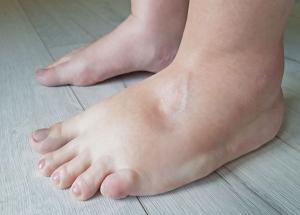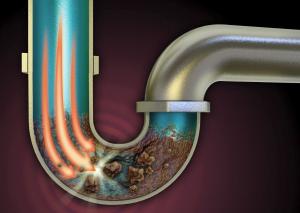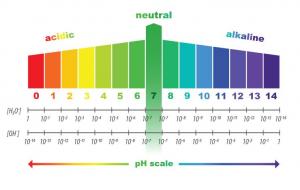Natural Strategies to Reduce Bloating and Water Retention

Water retention means we end up feeling bloated around the middle or we're plagued with fat, swollen ankles.
There are many circumstances which can bring about excessive water retention and we can end up feeling bloated or be plagued with fat, swollen ankles.
Magnesium deficiency is a significant contributor to chronic low-grade inflammation that is a risk factor for the pathological conditions such as cardiovascular disease, hypertension, and diabetes.”
SYDNEY, NSW, AUSTRALIA, June 17, 2022 /EINPresswire.com/ -- There are many different circumstances which can bring about excessive water retention - also known as fluid retention or oedema. We end up feeling bloated around the middle or we're plagued with fat, swollen ankles. — A recent NCBI study
This can happen in pregnancy – especially in the latter part where the baby is bigger and contributing more waste to mum’s elimination system. Swelling also occurs when people are exposed to toxic chemicals or the wrong medications; they eat a diet of processed, junk foods; they're an alcoholic; they don’t get enough exercise; or they have some kind of injury, congenital or genetic problem with their detoxification and elimination system.
The kidneys are responsible for water and electrolyte balance in the body, as well as being the major detoxification and filtering organs in the body. The kidneys filter a person's blood a remarkable 60 times a day. If people have problems with the functioning of their liver and kidneys, this slows down detoxification and can lead to acidification.
Some people have digestive disorders which can make their digestive system slow and sluggish, which will slow down detoxification as well. People with cardiovascular issues or congestive heart failure have problems with blood circulation, which limits the blood supply to the kidneys. If the blood filtering process is compromised, then pH levels can slip to acidic levels. This makes the blood somewhat thicker with platelet stickiness. It also causes inflammatory conditions which can often spread in the urinary tract, bladder and kidneys.
What are the Best Ways to Support the Kidneys?
Researchers have found that magnesium, of all the electrolytes, has the biggest influence on electrolyte balance and kidney function (see MDPI study). This is because magnesium controls how calcium works in the body. In addition, magnesium competes with sodium and preserves cellular potassium levels, which is important for cardiovascular health.
Magnesium helps the kidneys to maintain optimal water and electrolyte balance, and is essential in blood pressure normalisation, insulin regulation, bone health, vascular health and heart rhythm. A recent NCBI study concluded that magnesium also has an anti-inflammatory effect. The study stated: “Magnesium deficiency is a significant contributor to chronic low-grade inflammation that is a risk factor for a variety of pathological conditions such as cardiovascular disease, hypertension, and diabetes.”
Kidney (renal) disease can be a result of - and also the cause of - magnesium deficiency. Kidney tubules become stiffer with ageing, thereby losing too many alkalising minerals such as magnesium. Premature ageing, together with compromised renal function, can be caused by excessive free calcium not being controlled by enough magnesium. This makes it harder to control pH balance so the acids take over. As a response, the body seeks to rebalance itself via dilution with water - hence, water retention.
Add magnesium and hydrate, hydrate, hydrate
It may seem like a contradiction that you can have water retention and at the same time be getting muscle cramps - but this can happen. Cramps occur when the muscles get dehydrated and squeezed. This is due to the body being in drought and rationing water. The muscle fibres need a lot of water to expand and relax, but much of that water is being redirected to other extra cellular spaces to dilute the toxic accumulation and acidosis. Muscles also need more magnesium to control the calcium involved in the muscle contraction.
If the cell pH starts to drop too low, the body will seek to dilute itself with more water and it does this by restricting urinary water loss. See Dr Batmanghelidj’s book and video about this topic: 'The Body’s Many Cries for Water'. To do this, the brain sends signals to the kidneys to hold back more sodium. As a result, the extra sodium attracts more water in the extracellular spaces around tissue cells, causing puffiness and swelling (and sometimes inflammation).
As energy metabolism drops in line with a drop in pH, we start to feel sluggish, fatigued and lacking in concentration because the acidity robs us of water, oxygen and adequate use of magnesium. Optimal pH of cells is 7 (neutral) for the best metabolism and enzyme function.
If detoxification improves, and cell hydration and pH can rebalance, the kidneys are able to let go of the excess sodium (and therefore the excess water), thereby alleviating the water retention issue. This is the reason a doctor will often advise to avoid eating sodium (table) salt if you have a problem with water retention. But it's also important to pay attention to the detoxification and waste disposal system to solve the water retention problem.
It's important to drink mineral water because this will ensure the optimal health of the kidneys and avoid water retention. The average adult can drink three litres of water per 24 hours for optimum hydration. When water is charged with mineral electrolytes, particularly magnesium, it becomes more hydrating for the cells and this in turn supports the kidneys so they can filter and detox.
Relying only on drinking water will not supply all the magnesium you need in order to replenish your levels. Transdermal magnesium can supply higher amounts (without diarrhea). You can’t overdose this way, as the skin selectively absorbs what it needs from the epidermis.
Avoid sugars, carbs and alcohol
It's also a good idea to avoid sugars, processed carbohydrates and alcohol because these are all big contributors to acidity. Regular exercise will push the lymph circulation (another waste disposal system), take onboard more oxygen and perspire out more wastes. Massage moves the lymph system and saunas help excrete wastes via the skin.
Some plant foods help support the kidneys including: herbal teas, fruits and vegetables. Herbs and spices which help the kidneys include milk thistle, dandelion, black cumin, garlic, roselle, horsetail, pomegranate, parsley, raspberry, juniper, oregano, caraway, hawthorn, fennel, cranberry, celery, mustard greens, melons and lemons. Green tea also has beneficial effects on electrolyte and water management.
Warning: Seek the advice of a medical practitioner if your symptoms become persistent.
Sandy Sanderson (Elektra Life Pty Ltd)
Elektra Magnesium
+61 409 307 327
email us here
Magnesium Mineral Supplement for Drinking Water


